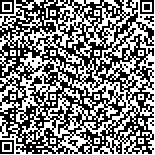| 引用本文: |
王茜,何忆清,李哲靓,余歌星,苏艳红,刘慧萍,杨硕.基于网络药理学探讨逍遥散调控多囊卵巢综合征子宫内膜容受性的作用机制及实验验证[J].湖南中医药大学学报,2023,43(1):69-79[点击复制] |
|
| |
|
|
| 本文已被:浏览 3034次 下载 1099次 |
| 基于网络药理学探讨逍遥散调控多囊卵巢综合征子宫内膜容受性的作用机制及实验验证 |
| 王茜,何忆清,李哲靓,余歌星,苏艳红,刘慧萍,杨硕 |
| (湖南中医药大学, 湖南 长沙 410208) |
| 摘要: |
| 目的 基于网络药理学及实验验证初步探究逍遥散调控多囊卵巢综合征(polycystic ovary syndrome,PCOS)子宫内膜容受性的核心中药、活性成分、药物靶点和作用机制。方法 通过TCMSP、ETCM数据库筛选逍遥散活性成分及潜在作用靶标,应用GeneGards和OMIM数据库检索PCOS疾病靶点,GEO数据库筛选子宫内膜容受性相关差异表达基因,取其交集获得PCOS子宫内膜容受性相关靶点;再将药物与PCOS子宫内膜容受性相关靶点取交集;通过STRING 数据库对交集基因进行PPI分析,对交集基因进行GO和KEGG功能富集分析;运用Cytoscape软件,初步构建逍遥散调控PCOS子宫内膜容受性的“中药-核心成分-潜在靶点-通路”网络。验证实验以Ishikawa细胞为受试对象,通过Western blot及qRT-PCR检测逍遥散及其核心中药含药血清对Ishikawa细胞VEGF、VEGFR2、COX2、PKC和整合素αvβ3的蛋白及mRNA表达的影响。结果 GeneGards和OMIM数据库获得5451个疾病基因,GEO数据库获得375个差异表达基因,取交集获得102个PCOS子宫内膜容受性相关靶点;在逍遥散方中获得161个药物活性成分,222个药物靶点,最终得到29个交集基因。GO功能富集分析发现,主要涉及脂质与动脉粥样硬化、流体剪切应力与动脉粥样硬化、蛋白多糖等分子功能。KEGG通路富集分析发现,其主要涉及P53、NF-κB、AGE-RAGE、VEGF等信号通路。初步筛选出逍遥散调控PCOS子宫内膜容受性的核心中药为柴胡、白芍、薄荷、甘草4味。细胞实验表明,与空白血清组比较,逍遥散、逍遥散核心中药、阿司匹林含药血清组的VEGF、VEGFR2、COX2、PKC、整合素αvβ3蛋白及mRNA表达明显升高(P<0.01,P<0.05)。结论 逍遥散、逍遥散核心中药可能通过调控子宫内膜VEGF信号通路,促进子宫内膜血管生成,改善子宫内膜容受性。 |
| 关键词: 逍遥散 多囊卵巢综合征 子宫内膜容受性 网络药理学 VEGF信号通路 |
| DOI:10.3969/j.issn.1674-070X.2023.01.011 |
| 投稿时间:2022-05-18 |
| 基金项目:国家自然科学基金项目(81503611);湖南省自然科学基金项目(2020JJ5427);湖南省教育厅优秀青年项目基金(20B428);湖南中医药大学中西医结合一流学科开放基金项目(2020ZXYJH59)。 |
|
| Mechanism exploration of Xiaoyao Powder regulating endometrial receptivity in PCOS based on network pharmacology and its experimental verification |
| WANG Xi,HE Yiqing,LI Zheliang,YU Gexing,SU Yanhong,LIU Huiping,YANG Shuo |
| (Hunan University of Chinese Medicine, Changsha, Hunan 410208, China) |
| Abstract: |
| Objective To investigate the mechanism of Xiaoyao Powder (XYP) regulating endometrial receptivity in polycystic ovary syndrome (PCOS) and its core herbs, active components and potential therapeutic targets, based on network pharmacology and experimental verification. Methods The active components and potential therapeutic targets of XYP were obtained through TCMSP and ETCM database screening. GeneGards and Online Mendelian Inheritance in Man (OMIM) databases were used to search for disease targets of PCOS, and Gene Expression Comprehensive database (GEO) was used to find differentially expressed genes associated with endometrial receptivity. Finally, they were crossed to obtain PCOS endometrial receptivity related targets. The intersection of drugs and endometrial receptivity related targets of PCOS was selected. Then the intersected genes were imported into the STRING database for the protein-protein interactions network analysis. And GO biological function process and KEGG metabolic pathway enrichment analysis of them were also performed to explore the potential molecular mechanism. A network of "Chinese medicine-core component-target-pathway" was conducted by Cytoscape. Ishikawa cells were taken as the subjects in the confirmatory experiment. The effects of XYP medicated serum on VEGF, VEGFR2, COX2, PKC, integrin αvβ3 protein and mRNA expression in Ishikawa cells were detected by Western blot and qRT-PCR methods. Results A total of 5451 disease genes were acquired from GeneGards and OMIM databases; 375 differentially expressed genes were gained from GEO database, and 102 PCOS endometrial receptivity related targets were obtained by taking the intersection. A total of 161 active pharmaceutical components and 222 drug targets were obtained in XYP, from which 29 intersection genes were finally screened. GO enrichment showed that molecular function, such as lipids and atherosclerosis, fluid shear stress and atherosclerosis, and proteoglycans were concerned. KEGG pathway enrichment analysis indicated that P53, NF-κB, AGEs-RAGE, VEGF and other signaling pathways were mainly involved. In regulating endometrial receptivity, the core Chinese medicines of XYP were Chaihu (Radix Bupleuri), Baishao (Radix Paeoniae Alba), Bohe (Herba Menthae), and Gancao (Radix et Rhizoma Glycyrrhizae). Cell experiments showed that compared with the blank serum group, the expression of VEGF, VEGFR2, COX2, PKC and integrin αvβ3 protein and mRNA increased significantly in XYP group, XYP core Chinese medicines group and aspirin-containing serum group (P<0.01,P<0.05). Conclusion XYP and its core Chinese medicines may affect endometrial angiogenesis to improve endometrial receptivity by regulating VEGF signaling pathway. |
| Key words: Xiaoyao Powder polycystic ovary syndrome endometrial receptivity network pharmacology VEGF signaling pathway |
|

二维码(扫一下试试看!) |
|
|
|
|




